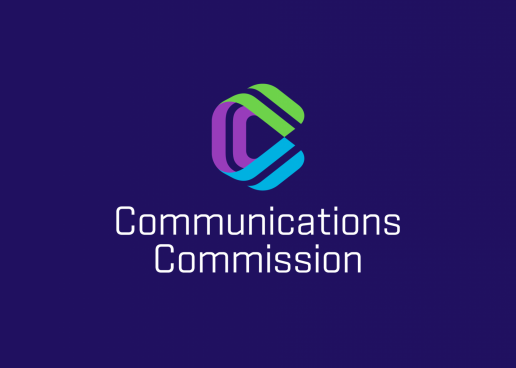Communications Commission: Pridon Injia is Unlawfully Using the Parliament as a Platform to Pursue his Personal Business Interests

The Communications Commission is dismayed by the fundamentally misleading statements made by the opposition Member of the Parliament of Georgia Pridon Injia. By making misleading statements about the Communications Commission, Mr. Injia violated the Code of Ethics of the Members of the Parliament of Georgia. Additionally, there is a conflict of interest, as Mr. Injia, his family members and close relatives own shares and hold senior positions in several authorised undertakings in the electronic communications sector – companies that are regulated by the Communications Commission. Pridon Injia is using the Parliament as a platform to pursue his personal business interests in violation of the Code of Ethics. Furthermore, his statements attempt to undermine the independence of the Communications Commission, which is guaranteed by the Constitution of Georgia. This is absolutely unacceptable.
Pridon Injia is a member of the supervisory board of System Net Ltd, thereby directly violating Article 13.7 of the Law of Georgia on Conflict of Interest and Corruption in Public Service, which states that “a public servant may not be a permanent head of a business entity, or a member of a controlling, a supervisory or an auditing body.” Mr. Injia also owns a 46.238% stake in another authorised undertaking, Akhali Kselebi Ltd. Mr. Injia’s family member (wife) and close relative (son) also hold stakes in undertakings authorised in the field of electronic communications.
The Parliament of Georgia adopted the Code of Ethics of the Members of the Parliament of Georgia in February 2019, what obliges the MPs to comply with the terms of the Code. According to Art. 3 a) of the Code, “the Member of Parliament shall not use the status of the Member of Parliament in favor of personal, family members’ or close relatives’ interests; for the purposes of the Code, family member and close relative imply persons defined by Article 4 of the Law of Georgia on Conflict of Interest and Corruption in Public Service. The Member of the Parliament is obliged, to inform the Procedural Issues and Rules Committee in written form about his/her or his/her family members’ special interest in entrepreneurial activity prior to the completion of the discussion procedure on the issue.. The Committee will publish this information on the Parliament website.”
Based on the above, it is obvious that MP Pridon Injia = violatied the Code of Ethics of the Members of the Parliament of Georgia.
The institutional and financial independence of the Communications Commission is guaranteed by the Constitution of Georgia, the Law of Georgia on National Regulatory Bodies, the Law of Georgia on Broadcasting, and the Law of Georgia on Electronic Communications. Specifically, Article 1.2 of the Law of Georgia on National Regulatory Bodies guarantees “the independence of national regulatory bodies from any political pressure or inappropriate effect or unlawful interference from state authorities and other bodies or any other actions that may infringe upon their independence.” Article 4.2 of the same Law states that “any type of interference in the ordinary course of activities of a National Regulatory Body, or of its control, or requesting a report regarding its activities, shall not be permitted unless otherwise provided for by law.” According to Article 4.3 of the same Law, “the core principles which determine independence [include] the impermissibility of any kind of control over national regulatory bodies; and the submission of reports only to the President of Georgia, the Government of Georgia and the Parliament of Georgia in accordance with the corresponding law.” The process in question is defined in Article 13 of the Law of Georgia on Broadcasting, which states that “the Commission shall, not later than 1 June of each year, submit to the Parliament of Georgia, the President of Georgia and the Government of Georgia and publish the progress reports and the results of the financial audit for the previous year.”
This is the framework which defines the accountability of the Communications Commission as the national regulatory body. Any other interference in the activities of the Commission constitutes an attempt to undermine the independence of the Commission, exercise undue influence over it and unlawfully intervene in its activities.
Pridon Injia’s claim that the fee for using the numbering resources ought to be transferred to the State Budget, rather than the budget of the Communications Commission, is unsubstantiated and exceeds legal norms. In December 2017, the Parliament of Georgia introduced changes to several legal acts(the Law on Broadcasting, the Law on Electronic Communications, the Law on Licences and Permits, and the Law on Licence and Permit Fees). These changes resulted in abolishment of the permits for the numbering resources. Consequently, the permit fees were also abolished, leaving only the fee for using the numbering resource, which shall be transferred to the budget of the Communications Commission. These circumstances are clearly and unambiguously presented in the explanatory notes that accompany the draft changes. These documents are publicly available and have been published on the official website of the Parliament of Georgia.
Based on the above, the Communications Commission contends that the statements made by the Member of Parliament Pridon Injia are unacceptable, and are designed to serve his personal business interests.










